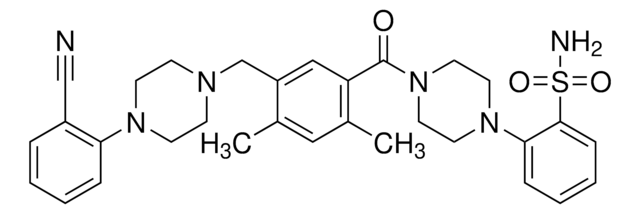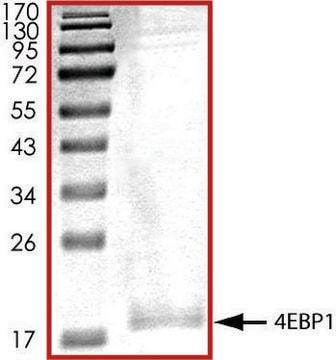SRP0255
eIF4E Active human
N-terminal GST-tag, recombinant, expressed in E. coli, ≥70% (SDS-PAGE)
Sinónimos:
CBP, Eukaryotic translation initiation factor 4E, mRNA cap-binding protein
About This Item
Productos recomendados
biological source
human
recombinant
expressed in E. coli
assay
≥70% (SDS-PAGE)
form
aqueous solution
mol wt
51 kDa
packaging
pkg of 100 μg
concentration
>0.02 mg/mL
technique(s)
cell based assay: suitable
suitability
suitable for molecular biology
NCBI accession no.
UniProt accession no.
shipped in
dry ice
storage temp.
−70°C
Gene Information
human ... EIF4E(1977)
General description
Application
Biochem/physiol Actions
Physical form
Preparation Note
Storage Class
10 - Combustible liquids
wgk_germany
WGK 1
flash_point_f
Not applicable
flash_point_c
Not applicable
Certificados de análisis (COA)
Busque Certificados de análisis (COA) introduciendo el número de lote del producto. Los números de lote se encuentran en la etiqueta del producto después de las palabras «Lot» o «Batch»
¿Ya tiene este producto?
Encuentre la documentación para los productos que ha comprado recientemente en la Biblioteca de documentos.
Nuestro equipo de científicos tiene experiencia en todas las áreas de investigación: Ciencias de la vida, Ciencia de los materiales, Síntesis química, Cromatografía, Analítica y muchas otras.
Póngase en contacto con el Servicio técnico








